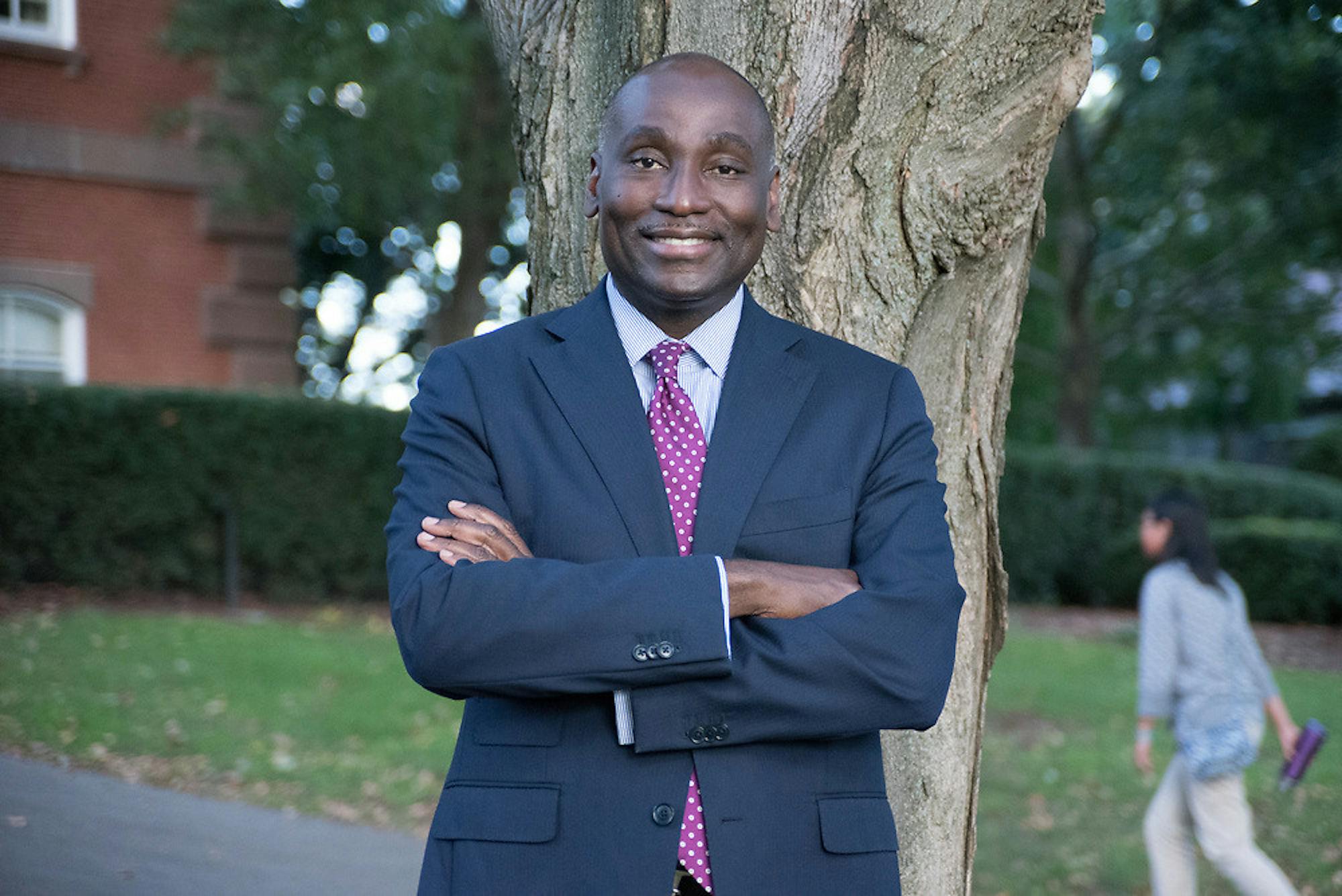The Office of the Provost and the Bridging Differences Initiative hosted the event “Envisioning an Antiracist Institution: A Virtual Tufts Table” on Feb. 16. The event featured keynote speaker Abi Williams, professor of the practice of international politics at The Fletcher School and director of the Institute for Global Leadership, and a speech from Tufts student René LaPointe Jameson. The event is part of a larger conversation about anti-racism at Tufts.
Associate Director of the Tisch College initiative on Social-Emotional Learning and Civic Engagement Deborah Donahue-Keegan, who is also a lecturer in the department of education, moderated the program. Provost and Senior Vice President Nadine Aubry, Associate Provost and Chief Diversity Officer for the Health Sciences Schools Joyce Sackey and Associate Provost and Chief Diversity Officer for the Medford/Somerville campus Rob Mack gave opening remarks.
“Bridging differences was established in 2015," Sackey said. "At the time its mission was to create space for people to come together to engage in dialogue over differences ... In 2020, given the racial reckoning which we were all living, and the fact that the university declared that it would like to work towards becoming anti-racist, the task force decided to revisit its mission … and revise the mission to actually include dialogue around race and racism.”
In his speech, Williams spoke about the urgency of addressing racism and the collective responsibility necessary to do so.
“It is a transformational challenge because we are seeking to eradicate a virus that has plagued our country and its institutions for centuries,” he said. “The existence and prevalence of this virus — the virus of racism — is precisely why anti-racism is so desperately needed and is absolutely vital.”
He also spoke about the ways racism is spread and what is necessary to prevent that.
“We know that no one is born a racist,” Williams said. “Children learn racism from their families, from their societies as they grow up. And so a task of building an antiracist institution would be of course education and learning education about anti-racism … but it will also mean unlearning certain things.”
Williams said that accountability is crucial to the success of anti-racism efforts.
“Nothing is more dangerous than to let people think that they can get away with actions that are wrong,” he said. "The university has to build and to maintain a robust system of accountability."
In her speech, LaPointe Jameson, a junior, said that everyone’s liberation is connected, and that racial justice can spark justice of all kinds, including environmental and economic justice.
She also added that race and racism are nothing more than social constructs.
“Race is a social construct," LaPointe Jameson said. "It was made up to justify the placement of Black and Indigenous people, [and] it has no fundamental basis in biology or anything like that. All racial groups are equal. No group is more athletic or more intelligent inherently. These are things … repeated over time to further support white supremacy.”
LaPointe Jameson also talked about ways in which the university has failed to achieve anti-racism efforts on campus. She specifically referenced the treatment of dining and custodial staff and the administration’s response to Tufts Students for Justice in Palestine and Tufts for a Racially Equitable Endowment’s referenda.
She reminded participants that students of color have drastically different experiences at predominantly white institutions than white students.
“Our students of color and white students have wildly different experiences in college," LaPointe Jameson said. "Students of color have to learn everything their white counterparts are learning on top of literally how to liberate themselves and their people, how to change oppressive systems. These are things that Tufts and other institutions for higher education aren't going to teach us.”
Following these presentations, participants discussed in breakout rooms the importance of making Tufts an antiracist institution and the steps necessary to work toward this goal. There were eight breakout rooms, each led by two or three facilitators. Once back in the main session, one facilitator from each group shared highlights from their discussion.
Assistant Dean of Research for the School of Arts and Sciences and Assistant Dean of Diversity and Inclusion for the Graduate School of Arts and Sciences Jackie Dejean led a group that discussed the generational benefits of anti-racism efforts.
“There was general agreement that we benefit by being an inclusive campus environment, and not just for the students and faculty and staff who are here but the students who learn from the antiracist environment will then become people in the workforce who change and will impact their families and raise their children to be anti racist,” Dejean said.
A group led by Flo Tseng, assistant dean for diversity, inclusion, equity and climate at the Cummings School of Veterinary Medicine, discussed changing how to view accountability.
“Normally when we think about accountability we're thinking about accountability to those who are above us in the hierarchy and our supervisors,” Tseng said. “We should have accountability also to our BIPOC community members and managers should be accountable to those who are managed, and all of these should motivate us, I think, to move our anti-racism efforts forward.”
Other groups discussed cluster hiring faculty of color and prioritizing funding for anti-racism efforts.
In her closing statement, Aubry thanked Williams and LaPointe Jameson for speaking, as well as participants for joining.
“I know we have an enormous [amount] of work to do here at Tufts, but hearing all your comments, all your passion, all your dedication and your commitment to these issues … gives me a lot of hope," Aubry said.






